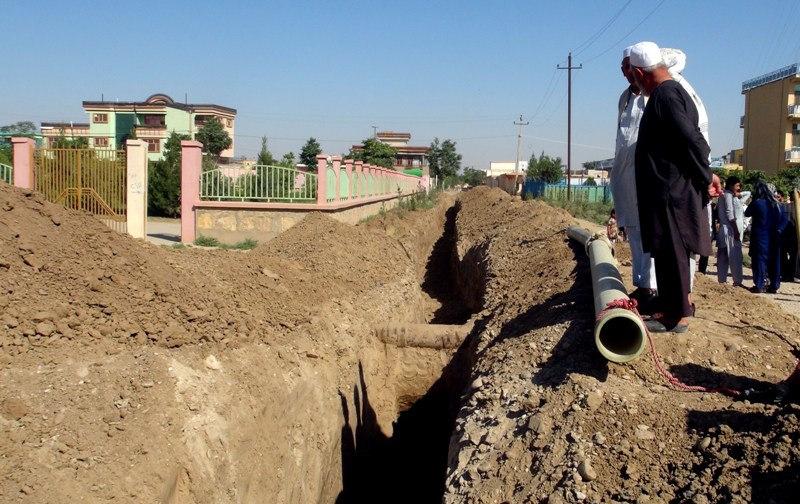KABUL Protection Agency (NEPA) says 70 percent of the underground water in capital Kabul is not safe for consumption.
The agency says the underground water in the central capital has been contaminated with bacteria and chemicals and thus does not meet the standard of healthy water.
A majority of the more than five million people living in Kabul still lacks access to safe potable water.
Planning chief at NEPA Mohammad Kazim Humayon told Pajhwok Afghan News that more than 70 percent of the underground water in Kabul was not healthy.
He expressed concern over polluting of the underground water, saying the problem was not limited to Kabul only as other major cities faced the same problem.
Humayon said the underground water had been contaminated with microbes and chemicals. “People drink this water because they have no other option.”
“This problem is not confined to Kabul, other major cities such as Herat, Balkh, Jalalabad and even some villages also face the same problem, people use chemical fertilizers in farms in rural areas which absorbs in the ground and contaminates water,” he said.
He said the government had so far taken no action to convert unclean water into clean and had ignored the issue as unimportant.
“The main duty of the government in the current situation is to create awareness among people about the water condition and the Ministry of Information and Culture with support of media and imams should create awareness in this regard,” Humayon said.
He warned Kabul residents would be forced into shifting elsewhere if the situation continued because Afghanistan lacked facilities to clean polluted water.
Meanwhile, Mohammad Naeem Tokhi, hydrology head at the Ministry of Water and Energy, said the increasing population, lack of sewage system, recycling system, urban canalization and a proper system of collecting and trucking out solid waste and a lack of standard septic tanks were reasons behind the polluted water.
He asked people to be careful in using and protection of underground water.
People’s concern about contamination of underground water
Sher Ahmad, a resident of Hotkhel area of Kabul, said: “The underground water in our area started getting polluted after an American camp discharged its wastes here.”
He said the water in their area was not drinkable. “When we boil it, an oily layer emerges on the water surface. The government has been unconcerned so far.”
Ahmad said he installed a water filter in his home but it did work. Local residents suffered from stomach pain, diarrhea, ameba and other water borne diseases, Ahmad added.
Shafiullah, a resident of Bagh-i-Daud area of Kabul, said: “We had the best water in the past, but the water was affected after people installed private septic wells in the area.”
“The government-supplied water turned polluted in recent months, Sometimes, garbage parts could be found in it, when we prepare tea from it, mysterious materials settle at the bottom of the glass,” Seema, a 35-year-old mother from Panjsad Family area of Kabul, said.
Zubaida Seddiqi, a pediatrician in Indira Gandhi Children Hospital, said studies showed the underground water in Kabul had been contaminated with chemicals and harmful bacteria.
She said water pollution caused many diseases such as diarrhea, typhoid, ameba, anemia and weight loss. Such diseases could paralyze or even kill a human.
She said researches done in the past showed that except Macro Rayan area, the underground water in all other regions of Kabul was polluted with microbes and chemicals.
The number of patients using the polluted water has increased in Kabul, she said.
Around 400 people, affected by using unhygienic food and water, daily visited the Indira Gandhi Children Hospital, she said, adding the number of such patients might be in thousands in Kabul.
Officials of the Ministry of Water and Energy confirmed the issue and said efforts were underway to resolve it.
Mohammad Naeem Tokhi said water recycling systems would be installed on the Logar and Panjsher rivers for resolving the water pollution problem.
He said an artificial system that purifies water by machine would be also activated with USAID support this year.
mds/ma








GET IN TOUCH
NEWSLETTER
SUGGEST A STORY
PAJHWOK MOBILE APP